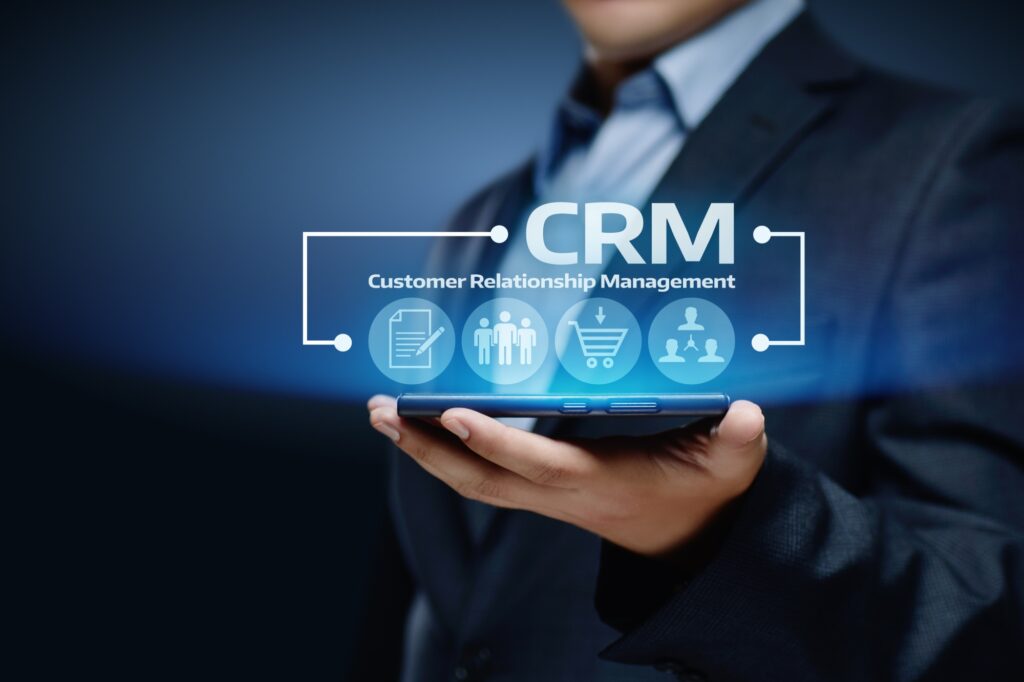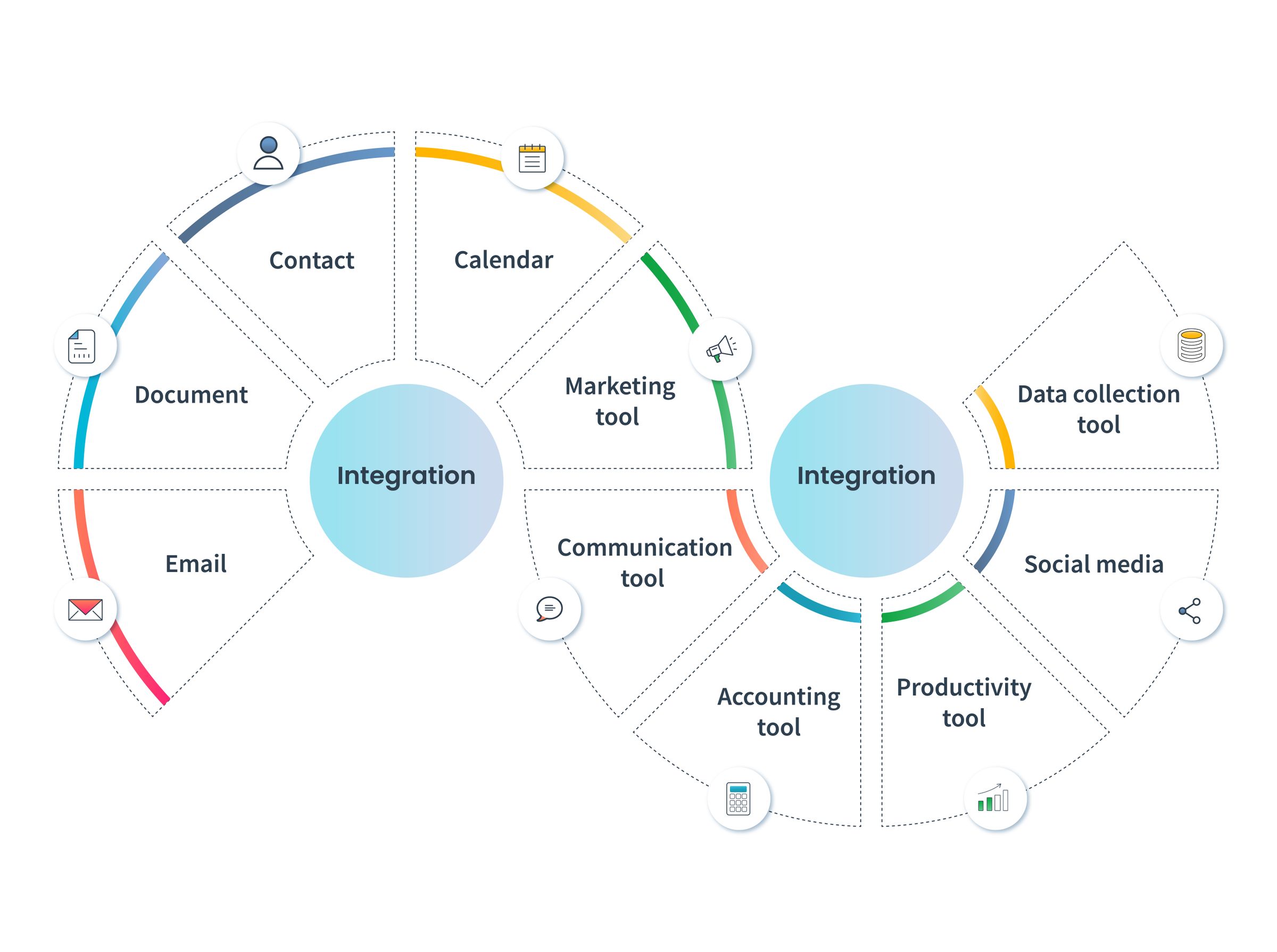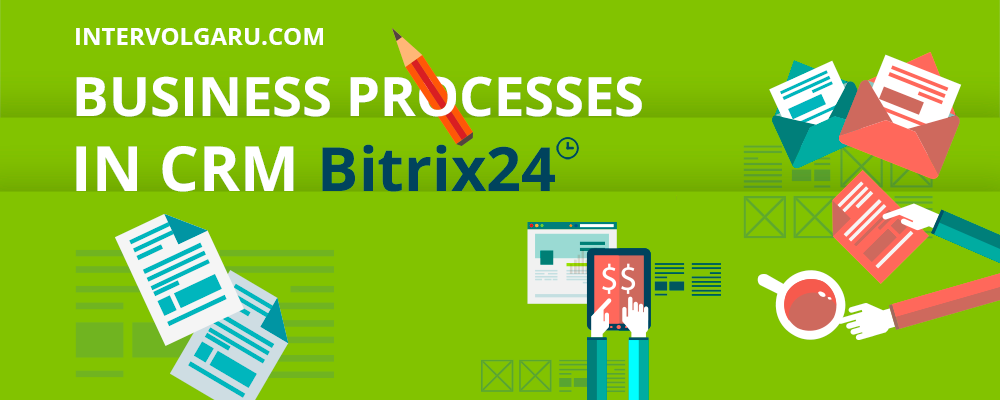Unlock Growth: Essential CRM Features for Small Businesses in 2024

Introduction: Why Your Small Business Needs a CRM
Running a small business is a whirlwind of activity. You’re juggling everything from marketing and sales to customer service and operations. In the midst of this, it’s easy for valuable customer interactions to fall through the cracks. That’s where a Customer Relationship Management (CRM) system steps in. It’s not just for big corporations; a CRM is a game-changer for small businesses, providing the tools you need to manage and nurture your customer relationships effectively. In today’s competitive landscape, understanding and responding to customer needs is paramount, and a CRM is the key to unlocking that understanding.
This article delves into the essential CRM features that every small business should consider. We’ll explore how these features can streamline your operations, boost sales, and cultivate lasting customer loyalty. Whether you’re a startup or an established small business, this guide will help you choose the right CRM and leverage its power to achieve sustainable growth.
What is a CRM? A Simple Explanation
Before we jump into the features, let’s clarify what a CRM actually *is*. At its core, a CRM is a software solution designed to help businesses manage all their interactions with current and potential customers. Think of it as a central hub where you store all your customer data, track your communications, and automate your workflows. It’s more than just a contact list; it’s a comprehensive system that helps you understand your customers better, personalize your interactions, and ultimately, drive sales and improve customer satisfaction.
Core CRM Features Every Small Business Should Consider
Choosing the right CRM can feel overwhelming, given the abundance of options available. However, focusing on a core set of essential features can simplify the decision-making process. Here are the must-have CRM features for small businesses:
1. Contact Management: Your Foundation
At the heart of any CRM is contact management. This feature allows you to store and organize all your customer information in one centralized location. This includes names, contact details, company information, and any other relevant data. A good contact management system should allow you to easily search, sort, and filter your contacts based on various criteria, such as location, industry, or purchase history. This centralized view eliminates the need for scattered spreadsheets and ensures that everyone on your team has access to the same, up-to-date information.
Key aspects of contact management include:
- Centralized Database: A single source of truth for all customer information.
- Contact Segmentation: Ability to group contacts based on demographics, behavior, or any other relevant criteria.
- Data Enrichment: Integration with third-party data providers to automatically add missing information to your contact records.
- Easy Search & Filtering: Quickly find the right contacts based on specific criteria.
2. Sales Automation: Streamlining Your Sales Process
Sales automation is all about streamlining your sales process and freeing up your sales team’s time to focus on what they do best: closing deals. This feature automates repetitive tasks, such as sending emails, scheduling follow-ups, and updating contact records. By automating these tasks, you can significantly improve your sales team’s efficiency and productivity. Sales automation can also help you track the progress of your leads through the sales pipeline, identify bottlenecks, and optimize your sales strategy.
Key aspects of sales automation include:
- Lead Management: Tracking and nurturing leads from initial contact to conversion.
- Workflow Automation: Automating repetitive tasks, such as sending emails and scheduling follow-ups.
- Sales Pipeline Management: Visualizing and managing the stages of your sales pipeline.
- Deal Tracking: Monitoring the progress of deals and identifying potential roadblocks.
3. Marketing Automation: Engaging Your Audience
Marketing automation is a powerful tool for engaging your audience and nurturing leads. This feature allows you to automate your marketing campaigns, such as email marketing, social media posting, and lead nurturing sequences. By automating these tasks, you can save time, improve your marketing efficiency, and increase your conversion rates. Marketing automation also provides valuable insights into your marketing performance, allowing you to track your results and optimize your campaigns for maximum impact.
Key aspects of marketing automation include:
- Email Marketing: Creating and sending targeted email campaigns.
- Lead Nurturing: Building relationships with leads through automated email sequences.
- Social Media Integration: Scheduling and managing social media posts.
- Marketing Analytics: Tracking and analyzing your marketing performance.
4. Customer Service & Support: Building Loyalty
Exceptional customer service is crucial for building customer loyalty and driving repeat business. A good CRM should provide features that enable your team to deliver outstanding customer service. This includes features such as case management, help desk integration, and self-service portals. By providing these tools, you can ensure that your customers receive timely and effective support, leading to increased satisfaction and loyalty.
Key aspects of customer service & support include:
- Case Management: Tracking and managing customer support requests.
- Help Desk Integration: Integrating with your help desk software to provide seamless support.
- Self-Service Portals: Providing customers with access to knowledge bases and FAQs.
- Customer Feedback: Collecting and analyzing customer feedback to improve your services.
5. Reporting and Analytics: Measuring Your Success
Data is king, and a CRM provides a wealth of data that can be used to measure your success and identify areas for improvement. Reporting and analytics features allow you to track key metrics, such as sales revenue, customer acquisition cost, and customer satisfaction. This data can be used to identify trends, make informed decisions, and optimize your business performance. A good CRM will provide customizable reports and dashboards that allow you to visualize your data and gain valuable insights.
Key aspects of reporting and analytics include:
- Customizable Reports: Generating reports based on your specific needs.
- Dashboards: Visualizing key metrics in a user-friendly format.
- Sales Forecasting: Predicting future sales based on historical data.
- Performance Tracking: Monitoring the performance of your sales and marketing efforts.
Advanced CRM Features to Consider
While the core features mentioned above are essential, some advanced features can further enhance your CRM’s capabilities and provide a competitive edge. Depending on your business needs, you might consider the following:
1. Integrations: Connecting Your Tools
A CRM is rarely a standalone tool. It needs to integrate with other software you use, such as your email marketing platform, accounting software, and social media channels. Integrations allow you to seamlessly share data between your different tools, eliminating the need for manual data entry and ensuring that your information is always up-to-date. Look for a CRM that offers a wide range of integrations with the tools you already use or plan to use.
2. Mobile Access: Staying Connected on the Go
In today’s fast-paced world, it’s essential to have access to your CRM on the go. Mobile access allows your team to access customer data, update records, and manage their sales activities from anywhere, at any time. Look for a CRM that offers a user-friendly mobile app that’s compatible with both iOS and Android devices.
3. Customization: Tailoring Your CRM
Every business is unique, and your CRM should be able to adapt to your specific needs. Customization features allow you to tailor your CRM to your workflows and processes. This might include creating custom fields, adding custom objects, and customizing your user interface. A highly customizable CRM can significantly improve your team’s efficiency and productivity.
4. Artificial Intelligence (AI) & Machine Learning (ML)
AI and ML are transforming the CRM landscape. These technologies can automate tasks, provide insights, and personalize customer interactions. For example, AI can analyze customer data to predict future behavior, recommend products, and automate customer service interactions. ML can automate routine tasks and improve the accuracy of your data. While AI and ML features might seem advanced, they can provide a significant return on investment for small businesses.
Choosing the Right CRM for Your Small Business
Selecting the right CRM is a crucial decision that can significantly impact your business’s success. Here’s a step-by-step guide to help you choose the right CRM:
1. Define Your Needs and Goals
Before you start evaluating CRM systems, take the time to define your needs and goals. What are you hoping to achieve with a CRM? What are your current pain points? What features are essential for your business? Identifying your needs and goals will help you narrow down your options and choose a CRM that’s a good fit for your business.
2. Research Your Options
Once you know your needs and goals, it’s time to research your options. There are many CRM systems available, each with its own strengths and weaknesses. Read reviews, compare features, and consider the pricing and scalability of each system. Some popular CRM options for small businesses include:
- HubSpot CRM: A popular and free CRM with a wide range of features.
- Zoho CRM: A comprehensive CRM with a strong focus on sales automation.
- Salesforce Sales Cloud: A powerful CRM with a wide range of customization options. (Can be more complex for smaller businesses.)
- Pipedrive: A sales-focused CRM with a user-friendly interface.
- Freshsales: A CRM with built-in phone and email capabilities.
3. Consider Pricing and Scalability
CRM pricing models vary. Some systems offer free versions with limited features, while others offer paid plans with more features and functionality. Consider your budget and your future growth plans when choosing a CRM. Choose a system that’s scalable and can grow with your business.
4. Evaluate Ease of Use
A CRM is only effective if your team actually uses it. Choose a system that’s easy to use and has a user-friendly interface. Consider the learning curve and the amount of training required. Look for a CRM that offers good customer support and documentation.
5. Test Drive the CRM
Before committing to a CRM, take the time to test drive it. Most CRM systems offer free trials or demos. This will give you the opportunity to try out the features, evaluate the user interface, and see if the system is a good fit for your business. Get your team involved in the testing process to gather feedback and ensure that everyone is comfortable with the system.
Implementing Your CRM: Best Practices
Once you’ve chosen a CRM, it’s time to implement it. Here are some best practices to ensure a smooth implementation:
1. Plan Your Implementation
Develop a detailed implementation plan that outlines the steps you need to take to set up your CRM. This plan should include a timeline, a budget, and a list of tasks. Assign roles and responsibilities to your team members and ensure that everyone is aware of their tasks.
2. Migrate Your Data
Migrating your existing customer data to your new CRM is a crucial step. Clean up your data before migrating it to ensure accuracy and consistency. Use the CRM’s data import tools to import your data. If you have a large amount of data, consider hiring a data migration specialist.
3. Train Your Team
Provide comprehensive training to your team on how to use the CRM. Training should cover all the essential features and functionalities. Offer ongoing training and support to ensure that your team is comfortable using the system. Create user guides and FAQs to help your team troubleshoot any issues.
4. Customize Your CRM
Customize your CRM to match your business workflows and processes. This might include creating custom fields, adding custom objects, and customizing your user interface. The more you customize your CRM, the more efficient and productive your team will be.
5. Integrate Your CRM
Integrate your CRM with other software you use, such as your email marketing platform, accounting software, and social media channels. Integrations will streamline your workflows and eliminate the need for manual data entry.
6. Monitor and Optimize
Once your CRM is implemented, monitor its performance and make adjustments as needed. Track key metrics, such as sales revenue, customer acquisition cost, and customer satisfaction. Use this data to identify areas for improvement and optimize your CRM for maximum impact.
The Benefits of Using a CRM for Small Businesses
Implementing a CRM can bring a multitude of benefits to your small business. Here’s a summary of the key advantages:
- Improved Customer Relationships: A CRM helps you understand your customers better and personalize your interactions.
- Increased Sales: CRM features like sales automation and lead management can help you close more deals.
- Enhanced Efficiency: CRM automates repetitive tasks, freeing up your team’s time.
- Better Customer Service: CRM provides tools to deliver exceptional customer service.
- Data-Driven Decision Making: CRM provides valuable data and insights to help you make informed decisions.
- Improved Team Collaboration: CRM centralizes customer data, making it easier for your team to collaborate.
- Increased Revenue: By improving sales, customer service, and efficiency, a CRM can drive revenue growth.
- Reduced Costs: Automation and streamlined workflows can help you reduce operational costs.
- Increased Customer Loyalty: By providing excellent customer service, a CRM can increase customer loyalty and retention.
Conclusion: Embrace the Power of CRM
In today’s competitive business environment, a CRM is no longer a luxury; it’s a necessity. By implementing the right CRM and leveraging its features, small businesses can unlock significant growth potential. By focusing on core features like contact management, sales automation, marketing automation, and customer service, you can build stronger customer relationships, streamline your operations, and drive sales. Remember to choose a CRM that aligns with your specific needs and goals, and don’t be afraid to customize it to fit your unique workflows. Embrace the power of CRM and watch your small business thrive.



